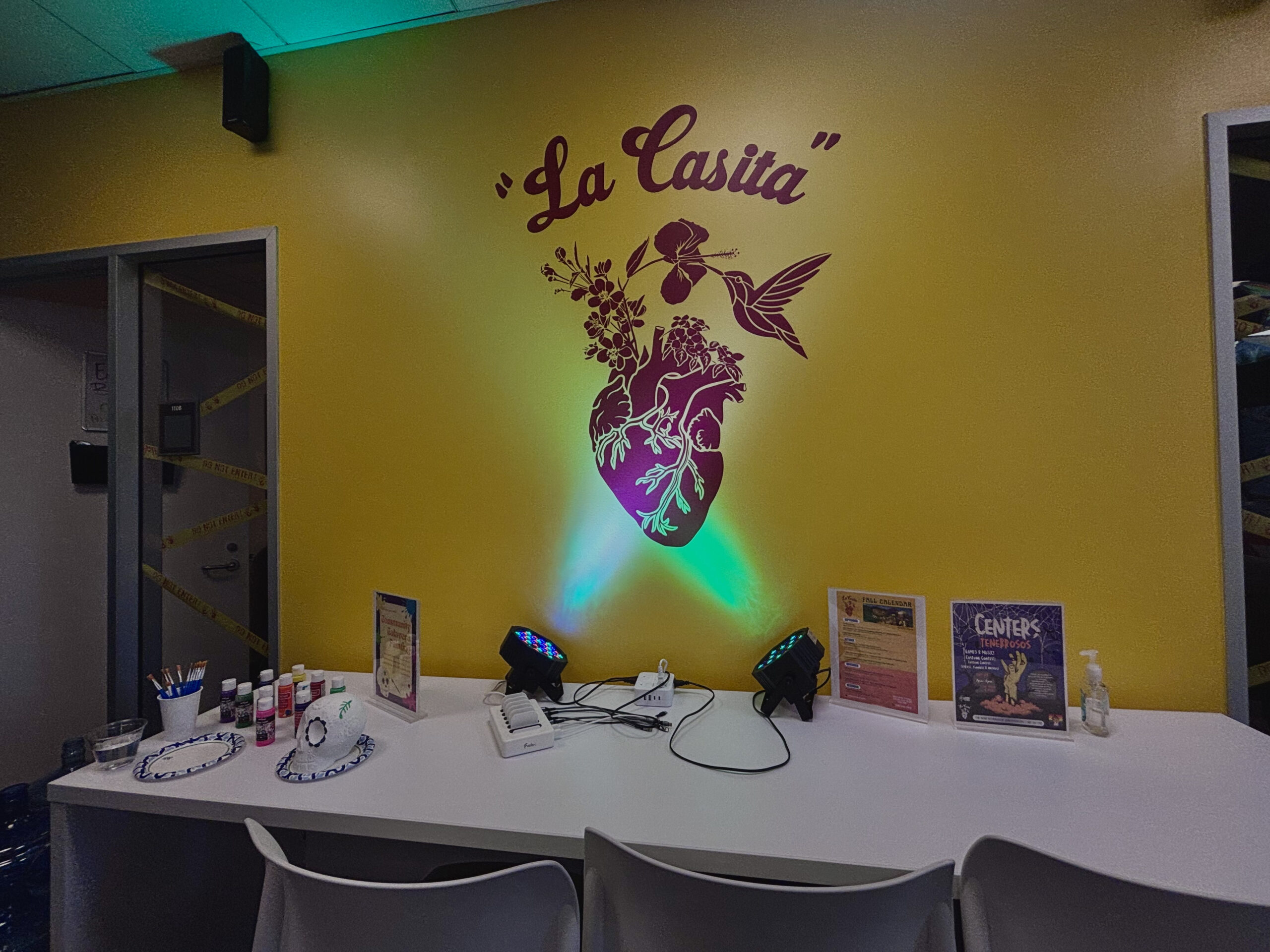By Viri Garcia Gallardo, Staff Reporter
The Latinx Cultural Resource Center at CSUDH announced last month that it will now be known officially as “La Casita,” the center’s former nickname. Program coordinator Rony Eduardo Castellanos Raymundo told The Bulletin that the change underscored the center’s commitment to inclusivity and support for all Dominguez Hills students, including former Dominguez Hills students.
The nickname La Casita, which means “the little house” in Spanish, dates back to the LCRC’s earliest days. The center was founded in 2020 by the student group El Comité de CSUDH to better serve the academic and cultural needs of Latinx Toros, who account for almost 70 percent of the student population.
“Students called it ‘La Casita’ because it reminded them of home, a space where they felt seen and represented,” Castellanos Raymundo said. “We wanted the name to capture the support and community spirit the center embodies – calling it La Casita felt right like we were naming it what it was always meant to be.”
A sophomore linguistics student, Ryan Gardiner, said he felt “validated” anytime he walked into La Casita. “It makes me feel like I’m wanted here.”
Junior sociology student Elenna Hernandez, the community advocate at La Casita, said she feels she can be herself at the center. “Being here and seeing people within the same culture embracing themselves, it normalizes that it’s okay to be yourself.”
Regardless of background, La Casita has functioned as a home away from home for many Toros over the years. The center has also served as an event space for newer cultural centers on campus, recalled Castellanos Raymundo, including the Asian and Pacific Cultural Center.
That spirit of inclusivity underscores La Casita’s mission of service to the Dominguez Hills community. The center has often served as a place for organizing on campus. This past April, the center hosted a screen-printing workshop to explore the “connection between activism and resistance.”
“It showed students that art can be revolutionary, especially outside mainstream media,” said student Armand Egere, who organized the workshop.
The following month, the group Students for Collective Liberation used the space to meet with CSUDH officials to demand the university disclose and divest from organizations supporting Israel’s military assault on Gaza. Castellanos Raymundo said coalition-building will be central to La Casita’s mission.
“We’re developing programs that address intersecting identities, like race, gender, and sexuality,” he said. “We must adapt and grow alongside student needs.”

